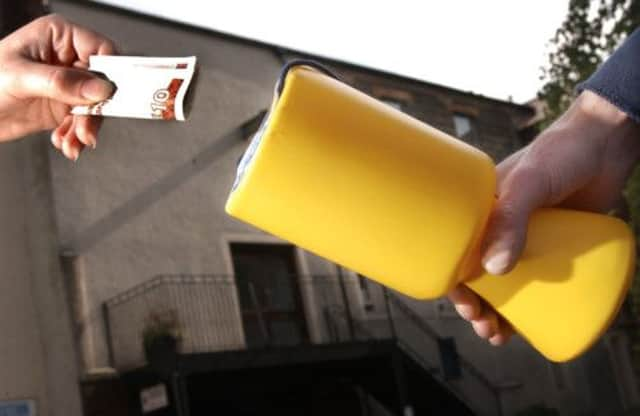Comment: Bid to gag charities an attack on free speech


Indeed, third sector organisations are the lifeblood of our democracy.
That’s why I’m astonished that the UK Government has proposed legislation that will effectively lead to the silencing of charity campaigning in the year before a general election. The Transparency of Lobbying, Non-Party Campaigning and Trade Union Administration Bill was introduced to the Commons with a flurry of attention for Part I of the bill – the lobbyist register.
Advertisement
Hide AdAdvertisement
Hide AdPart II, however, is tantamount to a gag order on any non-party organisation who wishes to campaign and raise awareness of an issue in the period running up to an election. The UK government proposes to expand activities covered by the previous Political Parties, Elections and Referendums Act (2000) to include rallies, hustings, media work, manifestos and, to top it all, staff costs.
In Scotland, this means that charities and other non-political organisations will be set a £35,000 spending cap on campaigning pre-election.
The grey area around “effect” and “intent” in the legislation has also grown wider. There is a concerted voice growing within the third sector right across the United Kingdom about campaigning on an issue and, in turn, being accused of effectively supporting a party or group of parties.
Under the new rules, charities can continue to campaign on an issue with the intent of advancing their charitable purpose.
However, a party which disagrees with their policy or position can claim the charity is campaigning against their candidates, report it to the Electoral Commission and take the charity to court.
With very little case law in this area, many charities will find their day-to-day campaigning activities scrutinised and potentially challenged in a court of law.
The Cabinet Office and Conservative MP Chloe Smith have publically denounced these claims, with one public letter dismissing concerns as “nothing more than scaremongering and [doing] nothing to help sensible political debate”.
It is important to remember that this piece of legislation was born out of a call for greater transparency in politics and the public policy process.
Advertisement
Hide AdAdvertisement
Hide AdThis call was led by and large by groups across civil society.
Therefore, to suggest that the current concerns raised by civil society are “scaremongering” is preposterous. The call for transparency has ended with a rushed Bill with ill-conceived proposals that equate to the greatest attack on civil liberties in the UK in a generation.
It is also interesting to note that much of the public debate and outcry about this legislation has focussed on the impact on UK election, but this piece of legislation could drastically alter how devolved elections unfold in the future.
In Scotland, civil society and the Scottish Parliament have co-existed since 1999 with mutual respect and understanding. Dating back to the call for a Scottish Parliament, civil society has played a key role in many of the biggest changes north of the Border. Organisations such as ASH Scotland and the National Autistic Society were influential in driving forward policy changes and government strategy to support their beneficiaries.
This bill will drive a stake into the heart of that relationship and seriously hinder work by charities and voluntary organisations who advocate on behalf of, and drive change for, their beneficiaries.
The UK government should be endeavouring to engage with civil society to understand better what more transparency would look like and how it could be delivered. It is all too apparent this is a bill that has been written deep within Whitehall, where process rules and reality is merely an unintended consequence.
It is universally accepted that democracy and public policy right across the United Kingdom is richer when all corners of society participate and feel they are free to do so. This bill deters engagement. It deters dissenters and it deters open reasoned debate.
The notion that basic campaigning which is not designed to influence an election result could be criminalised in the UK is an absurd attack on free speech. We can’t stand by and let this happen. «
David McColgan is policy officer at the Scottish Council for Voluntary Organisations